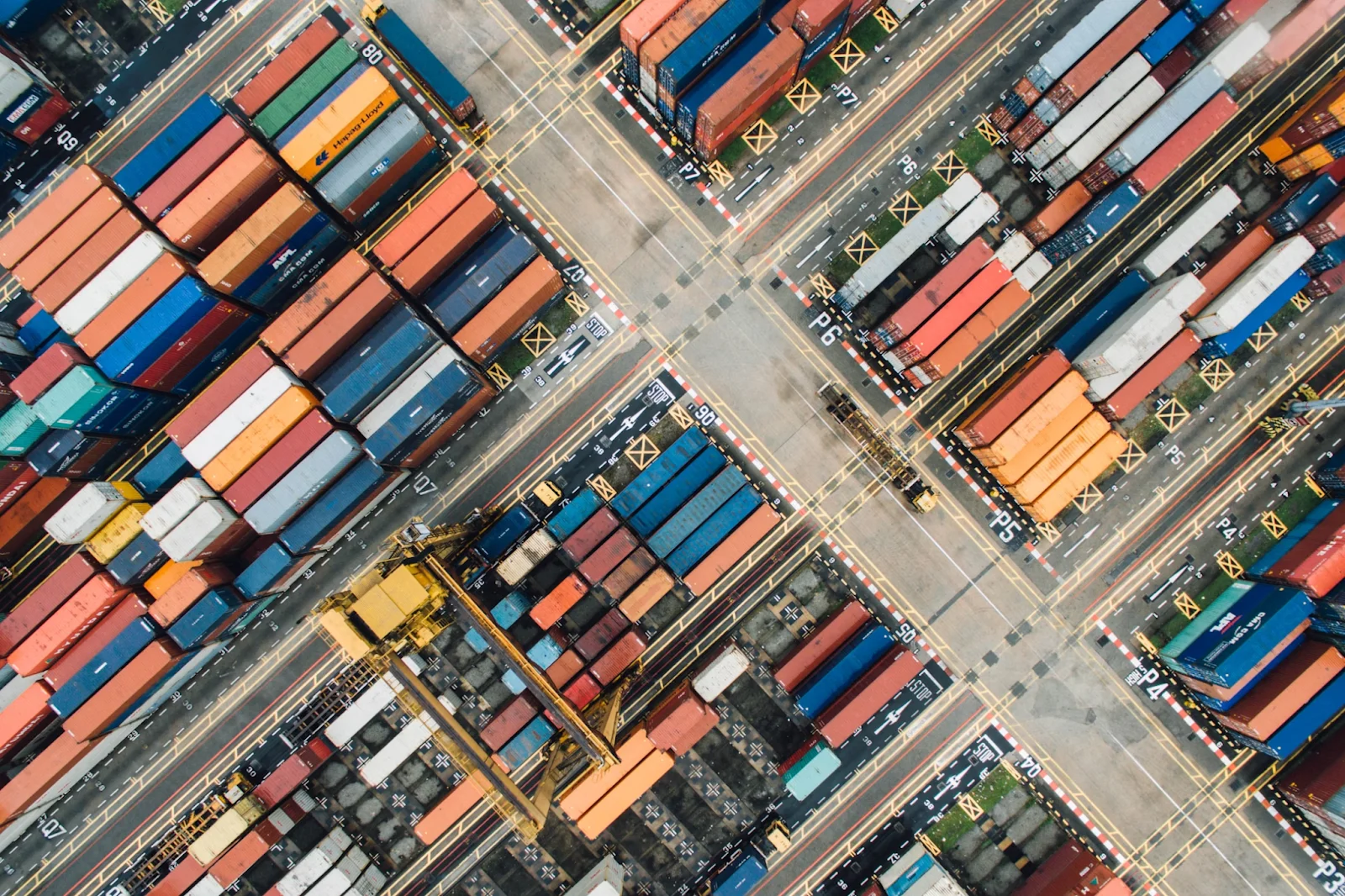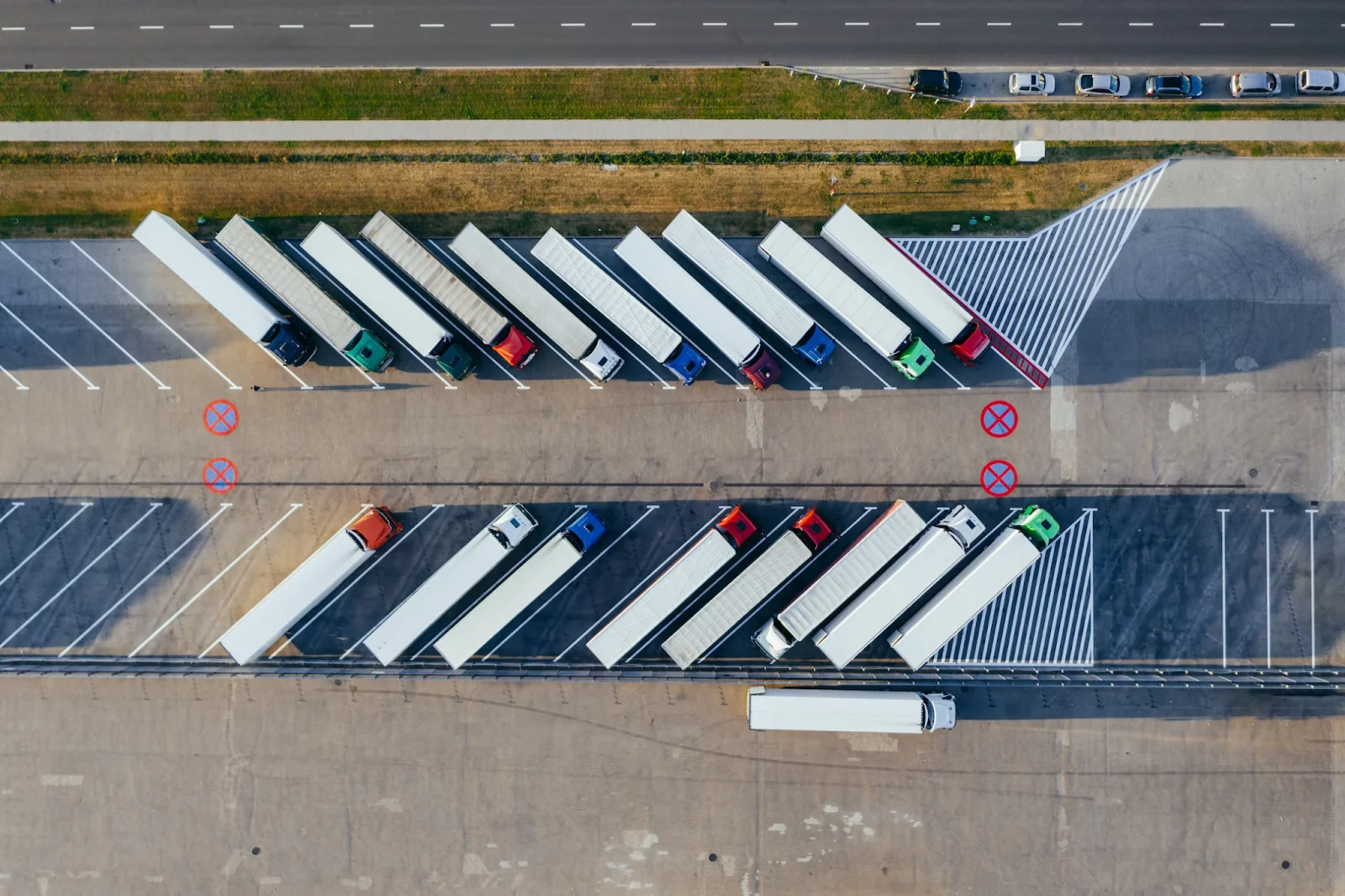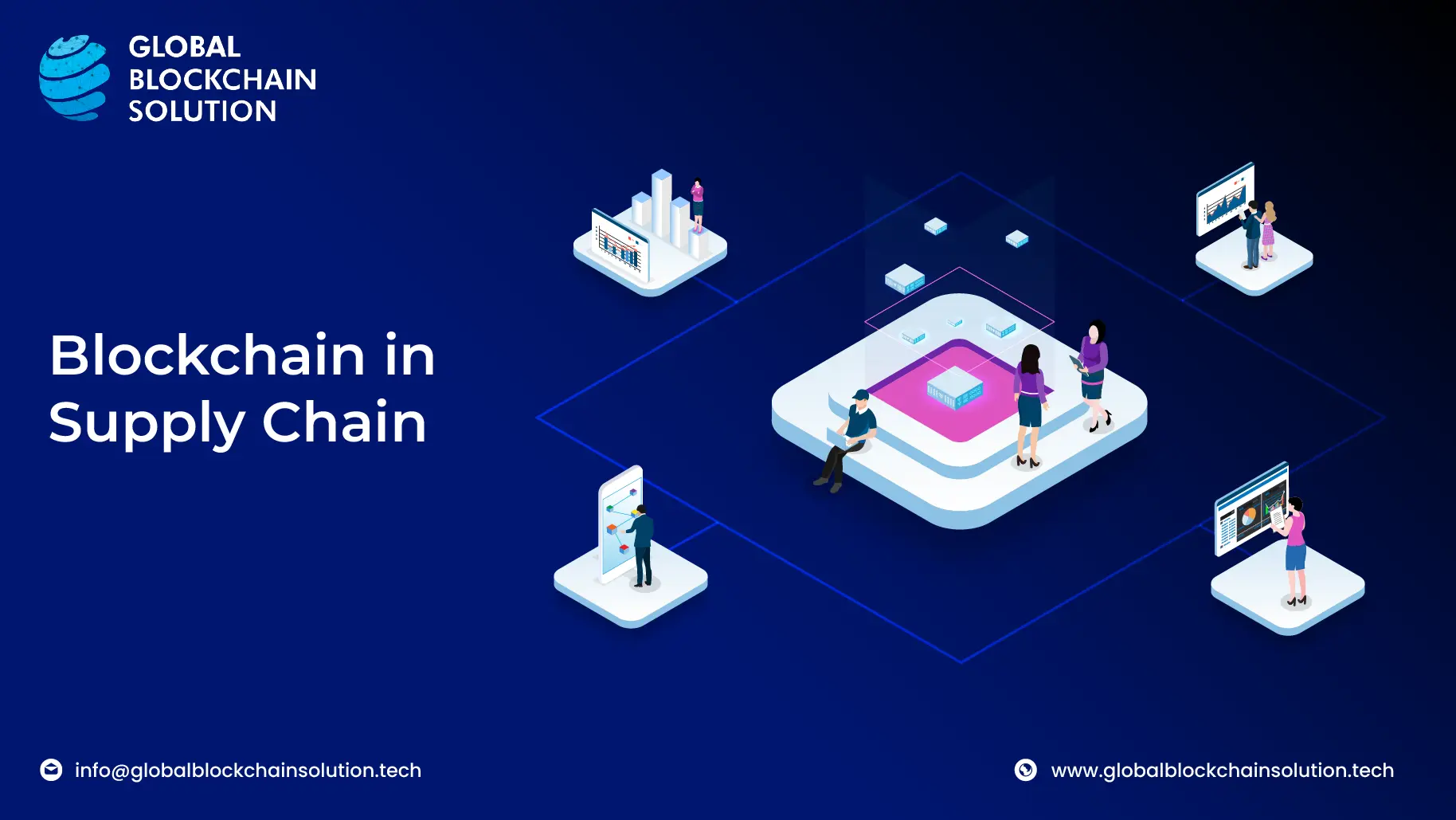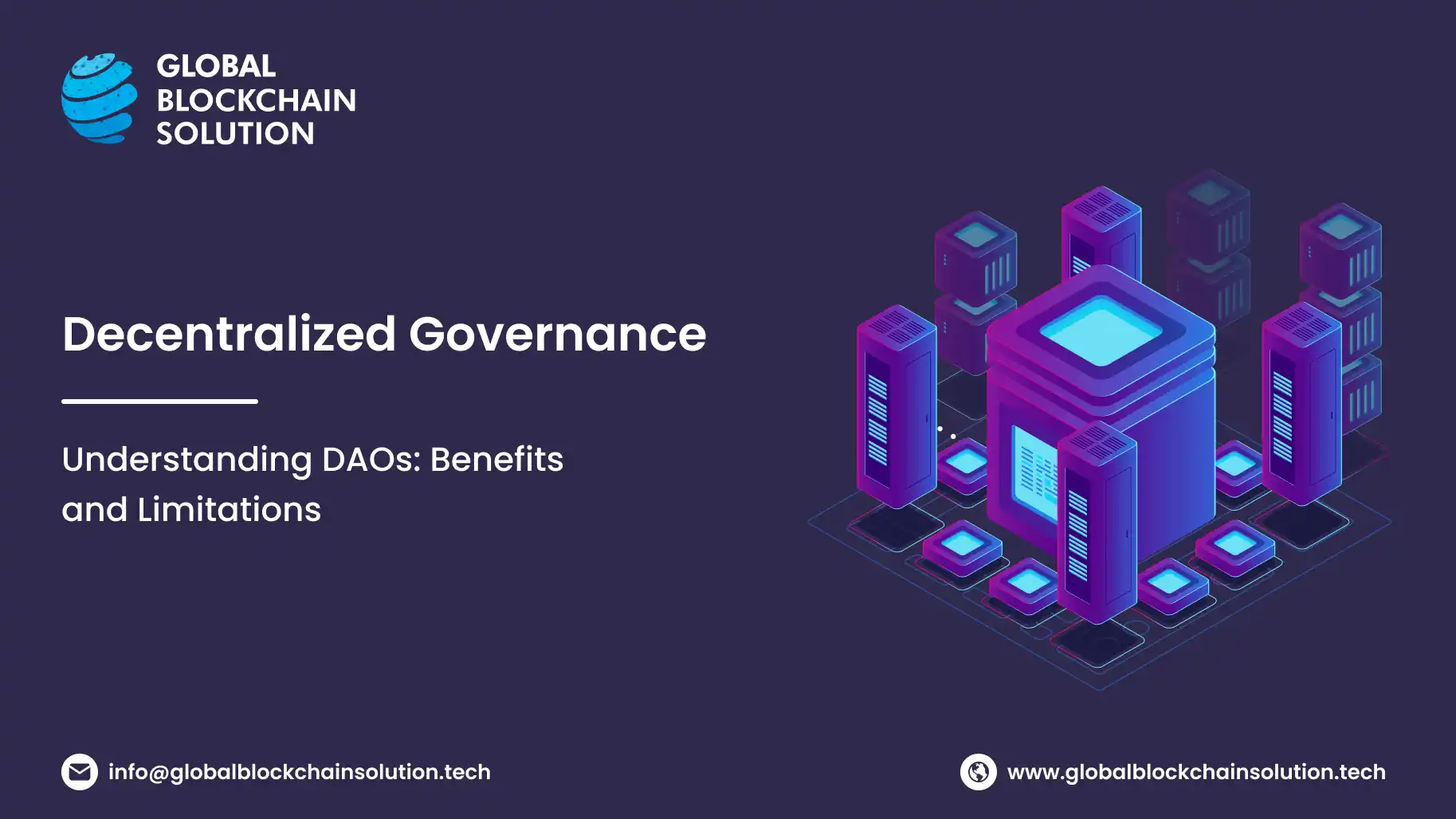As you relish the sweet burst of a ripe mango, you consider its journey. From sprouting in a far-off orchard, nurtured by diligent hands, to reaching your plate, there’s an epic trail of events taking place.
Once, tracing this journey was a week-long task even for a retail major that owns nearly the whole supply chain. Today, thanks to Walmart and IBM’s pioneering blockchain-based food traceability system, it takes just 2.2 seconds.

This isn’t sci-fi, it’s reality. A few clicks can reveal your mango’s path from tree to table, ushering in a new era of transparency in the logistics industry.
Blockchain technology, with a decentralized, secure, and transparent digital ledger, is at the heart of this shift, poised to dismantle outdated supply chain models and clear the fog of inefficiencies and obscured origins.
At Global Blockchain Solution, we will today delve into the blockchain revolution in logistics. We will examine the benefits of blockchain in supply chain and confront the hurdles that must be overcome to achieve total industry integration. So, get ready to step into the future of logistics with blockchain at its heart.
This Article Contains:
Benefits of blockchain in supply chain
Blockchain technology is transforming the logistics industry in several ways. Here, we delve into some of the key benefits of blockchain in the supply chain:
1. Enhanced Transparency
Blockchain technology provides a clear audit trail, creating tamper-proof digital documents that can be instantly checked for authenticity. Tracking goods from production to delivery, blockchain allows easy identification of bottlenecks and delays in supply chain management.
Also Read: Blockchain Scalability in High-Throughput Applications
In 2021, Walmart Canada rolled out its private blockchain network called “DL Freight”, which virtually eliminated payment disputes with its 70 third-party freight carriers. Before the system, more than 70% of its invoices were disputed. Post its rollout, less than 1% of invoices got flagged – and even then, disputes were quickly resolved.
2. Improved Efficiency
Efficiency is one of the biggest benefits of blockchain in the supply chain. With its instant verification, blockchain streamlines processes, cuts paperwork, and reduces errors. Automating document verification with blockchain slashes the time and cost of manual processes.
Slync.io integrates blockchain and AI to provide retailers, manufacturers, and suppliers with real-time visibility into all shipments, both local and global.
3. Cost Reduction
Every year, Kenya exports about 79 thousand metric tons of avocados, out of which, the Netherlands is a major importer. So, Maersk conducted a study to track paperwork and processes involved in the process.
The study found that it took over 100 people, 200 transactions, and 34 days for the refrigerated avocado containers to complete their journey, leaving a sizable scope for error and omissions. Worse yet, 10 days were exclusively spent waiting for the documents to be processed.
Also Read: Permissioned vs Permissionless Blockchain: Characteristics, Differences, and Examples
For the uninitiated, the process incurs significant costs through processing fees, delay penalties, and labor costs associated with handling and correcting paperwork. Furthermore, the reliance on outdated systems exacerbates transaction costs and compliance expenses, while delays in document processing also inflate inventory carrying costs, particularly critical for perishable goods like avocados.

Without a doubt then, cost reduction is a major benefit of blockchain in the supply chain. Blockchain can reduce costs and delays significantly by eliminating intermediaries, automating processes, and reducing fraud.
4. Decentralized Identifiers (DIDs)
Decentralized Identifiers (DIDs) are a groundbreaking feature of blockchain technology, offering a unique, secure, and verifiable identity for each participant in the supply chain. This capability ensures that every transaction, document, and product can be accurately traced back to its source, enhancing trust among all parties involved.
By leveraging DIDs, companies can avoid the common pitfalls of duplicated efforts and fraud, ensuring a seamless and transparent transaction process.
For instance, in the pharmaceutical industry, where the provenance of drugs is critical, DIDs can prevent counterfeit medications from entering the supply chain. This not only protects consumer health but also preserves the integrity of brands and saves costs associated with recalls and legal issues.
5. Smart Contracts
Smart contracts are revolutionizing logistics beyond mere transactional automation and security enhancements. For instance, Koopman Logistics exemplified this shift by adopting blockchain technology for automotive transportation, achieving the first-ever completely paperless vehicle delivery in 2018.
Also Read: What are Smart Contracts?
This innovation not only streamlined the shipping process but also significantly reduced the reliance on paper-based systems, marking one of the major benefits of blockchain in logistics as operational efficiency.
The smart contract advantage extends into financial processes, illustrating its versatility in logistics operations. A noteworthy initiative by BofA Securities (previously Bank of America Merrill Lynch), HSBC, and the Infocomm Development Authority of Singapore to digitize Letters of Credit (LC) showcases this broader application.

Traditionally, the LC process takes over a week, bogging down the supply chain with paper-based inefficiencies. By moving to blockchain, this collaboration facilitated the automatic execution of trade deals through smart contracts, substantially speeding up the process, and thereby reducing the time and complexity involved in the documentation process and fund movement.
Ever since, several financial institutions across the globe have integrated blockchain-enabled LC into their trade solutions - cutting down the TAT to less than 24 hours.
6. Asset Tokenization
Blockchain enables the representation of physical assets like warehouses, shipping containers, and vehicles as digital tokens. This allows for fractional ownership of high-value assets, increasing access and enabling new avenues for investment.
Tokenization also permits these assets to be integrated into smart contracts and seamlessly tracked as they move through the supply chain. For example, a container hauling perishable goods between a farm, packing facility, and retailer could trigger automatic payments and sensor readings through integrated Internet-of-Things devices.
This creates immense opportunities for automation, transparency, and accountability.
Also Read: What is Real-World Asset Tokenization? How it works and challenges?
Some key advantages of asset tokenization on the blockchain include 24/7 markets, reduced costs through disintermediation, accelerated settlement, improved liquidity, and embedded compliance. Overall, it enables the logistics industry to unlock value from traditionally illiquid assets while integrating them seamlessly into digital supply chain workflows.
Limitations of blockchain in supply chain
While blockchain technology is transforming the logistics industry, it’s important to acknowledge the challenges that exist. Here, we delve into some of the key limitations of blockchain in the supply chain:
1. Integration Complexities
Blockchain currently lacks standardization across different platforms, as its different communities have created isolated systems. This causes compatibility issues when attempting to integrate blockchain with legacy logistics systems.
It also poses problems in enabling communication between two different blockchain platforms, even if they are both designed for supply chain use. Overcoming this fragmentation requires careful API design and strategic implementation that puts interoperability as a priority.
2. Cost and Skill Barriers
The initial costs of developing, integrating, testing, and troubleshooting a custom blockchain system can seem prohibitive for logistics companies. Ongoing expenses around system support, maintenance, and training also deter adoption.

Additionally, there is a pronounced skills gap among logistic professionals in effectively leveraging blockchain technology to transform workflows. Most lack specialized training to deploy blockchain-based applications. Bridging this gap requires proactive talent development and partnership with expert providers.
3. Organizational Inertia
As with any new and complex technology, blockchain faces reluctance from logisticians and supply chain professionals comfortable with current processes. They may see more downside than upside in disrupting established ways of conducting business.
Stakeholder skepticism also slows adoption, especially from partners like shipping companies, vendors, and customers. They will need evidence of blockchain’s benefits internally before buying into transformation efforts, posing a chicken-and-egg dilemma. Leadership resolve can overcome this inertia through persistent change management.
4. Emerging Regulations
The legal and regulatory environment around blockchain is still evolving, lacking clarity around issues like data privacy, cybersecurity compliance, and fraud prevention. This uncertainty deters logistics companies from adopting blockchain out of concern they may face penalties for unintentional non-compliance.
Also Read: What is Howey Test?
More regulatory clarity is still needed to spur adoption while still reasonably protecting various public interests. The domain lacks regulatory standards governing blockchain implementation, leaving individual organizations unsure of how best to deploy it responsibly.
5. Deployment Obstacles
Implementing blockchain technology can be operationally complex across several dimensions. Architecting the blockchain system itself with sufficient security, access controls, and data integrity measures requires specialized expertise. Additionally, seamlessly integrating blockchain data and workflows alongside current logistic systems poses technological and organizational challenges.

Ongoing complications around bug fixes, feature enhancement, system scaling, and establishing governance processes can also hinder blockchain success. Lastly, ensuring it reliably interoperates with other critical emerging technologies like IoT sensors, AI analytics, and self-executing smart contracts poses separate data integration hurdles.
With patience and a thoughtful approach to these adoption barriers, blockchain’s immense value for transforming logistics can be fully realized in time. The technology warrants nursing support from industry leaders rather than swift abandonment when confronted by temporary growing pains.
Before You Go!
At Global Blockchain Solution, we remain committed to nurturing blockchain’s responsible and strategic deployment that’s customized to your needs. Our expertise in blockchain and various aspects of supply chain management has been pivotal in helping companies successfully integrate this technology.
If you see the potential for blockchain to transform your logistics operations, we encourage you to contact us. Speak to our experts about where blockchain can maximize efficiency, transparency, and cost savings given your specific supply chain challenges.
We offer a free 15-minute consultation to determine if our blockchain solutions are the right strategic fit for your business goals. This zero-obligation session with our advisors can provide tailored guidance on blockchain opportunities tailored to your operational objectives and pain points.
We invite you to take that first step toward supply chain innovation today. Our team looks forward to exploring how blockchain can optimize workflows, reduce expenses, and enhance customer experiences for your logistics business!
Frequently Asked Questions
1. What are some key benefits of using blockchain in supply chain management?
Some major benefits are enhanced transparency in tracking goods, improved efficiency through streamlined processes, lower costs by eliminating intermediaries and errors, and greater trust through features like decentralized identifiers (DIDs).
2. How does blockchain improve transparency in the supply chain?
Blockchain provides an immutable, shared record of transactions that all parties can access. This gives clear traceability of goods from origin through every stop to final delivery.
3. How can blockchain reduce costs in the supply chain?
It automates manual paperwork, reduces delays through faster processing, eliminates reconciliation needed for disputes, prevents fraud, and increases inventory visibility - all translating to lower operational costs.
4. How can companies evaluate if blockchain is suitable for transforming their supply chain?
Do a cost-benefit analysis weighted by blockchain’s alignment with specific operational pain points. Also, review the capabilities of solution providers specializing in supply chain blockchain integration and adoption roadmaps that work for your business.




